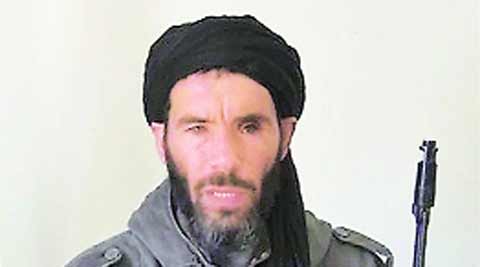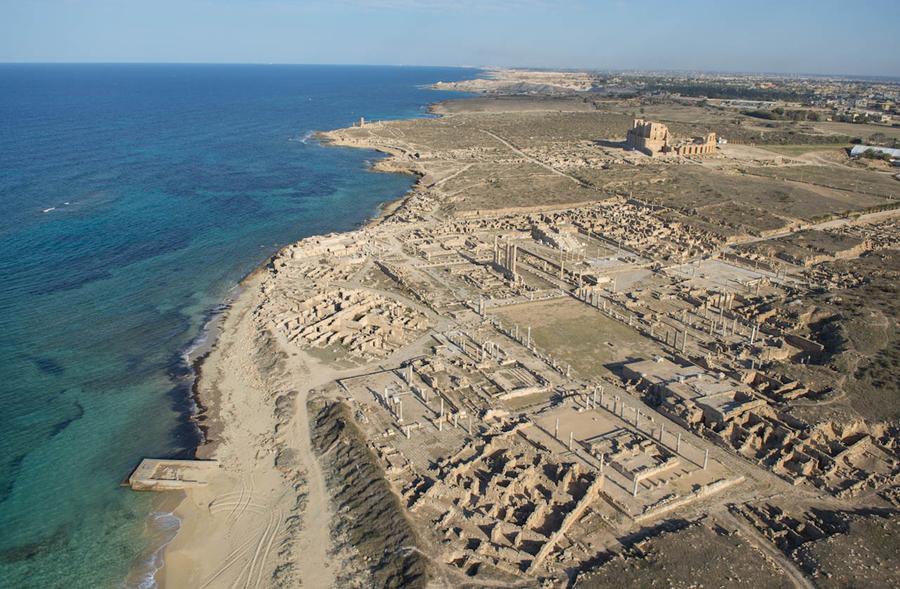FBI agents and prosecutors in New York had hoped to charge him prior to the refinery attack, but the criminal complaint sat at the Justice Department awaiting approval for years before he was finally indicted.
A Justice Department spokesman declined to comment.
Belmokhtar “continued to push the envelope of jihadi activity in the Sahara and North Africa,” including pioneering the use of ransom and large-scale coordinated attacks in that area, said Geoff Porter, president of North Africa Risk Consulting.
A charismatic, ambitious figure, the 43-year-old Belmokthar clashed with others in the African al-Qaeda outfit and twice helped form new splinter brigades, known as al-Mulathameen and, more recently, al-Murabitoun.
African allies had tried — and failed — to capture him. In 2013, the government in Chad announced his death in an operation in Mali, but he later resurfaced alive. There were other false reports of this death.
“We’ve been after this guy for a long time,” the former senior U.S. official said. “There were moments where we knew where he was, or thought we knew, but couldn’t get the bureaucracy together to act or to support allies” quickly enough.
According to a former Pentagon official, U.S. military leaders for years resisted going after Belmokhtar, who they then saw as a peripheral threat, as they struggled to manage the wars in Iraq and Afghanistan.
Before the June strike, U.S. officials said, they had been tracking Belmokhtar on and off for several years, including in southwest Libya. In that hunt, the United States worked closely with France, drawing on its historic military and intelligence presence in that region.
Before the June strike, U.S. officials said, they had been tracking Belmokhtar on and off for several years, including in southwest Libya. In that hunt, the United States worked closely with France, drawing on its historic military and intelligence presence in that region.
“We are very, very careful about doing these properly,” a Defense official said. “There’s no appetite to make a tactical gain to risk a strategic loss.”
Officials thought that the others at the Ajdabiya meeting that June night — fewer than 10 — were militants and legitimate targets. The strike went ahead.
As soon as the American fighter jets dropped their lethal cargo, the scramble began to determine the operation’s outcome.
[How the United States hunts militant targets overseas]
U.S. officials say that, ideally, they would use DNA analysis retrieved from an attack site to establish a militant’s identity, as they did following the raid that killed al-Qaeda founder Osama bin Laden.
In most cases, though, their “battlefield damage assessment” is done using intelligence means. To get to jackpot, officials require multiple, high-confidence sources. It is uncertain work: Officials sort through clues relayed in private communications and public statements by militant groups, trying to slice through misinformation.
In such cases, a senior defense official said, the bureaucracy is “trying to balance across all the evidence.”
Usually, a definitive conclusion can be reached quickly. In November, after U.S. planes targeted Abu Nabil al-Anbari, the head of the Islamic State’s Libya cell, the Pentagon was able to confirm his death in a matter of weeks. Officials reached a conclusive determination in a similar time frame after a strike in Syria last fall targeting Mohammed Emwazi, the British militant known as “Jihadi John.”
But occasionally, it is more difficult. In 2007, the Pentagon sent a small team of U.S. forces into Somalia to determine whether Aden Ayrow, a senior Somali militant, had been killed in an airstrike; several months later, he was named head of al-Qaeda operations and called for foreigners to be slain. Another operation killed him the following year.
In 2009, a CIA drone strike in Pakistan was thought to have killed Saad bin Laden, the al-Qaeda’s founder’s son, but it took intercepted family communication to confirm it.
“Jaffer, of the ACLU, said that was even more true with so-called signature strikes, in which officials authorize attacks based on patterns suggesting militant activity rather than information about a specific suspect.If we don’t get [confirmation] right away it becomes very hard,” another defense official said. “And it becomes harder with time.”
In those cases, “they don’t know the identities before, and they don’t know the identities after,” he said.
The human cost of erroneous targeting is high. In 2014, the United States paid over $1 million in compensation to families of a wedding party killed in an errant strike in Yemen.
The difficulty of confirming outcomes in many places may be one reason why U.S. officials have sometimes opted for Special Operations raids instead of drone strikes.
‘He’s a wily character’
After the strike in Ajdabiya, officials were encouraged when they learned that at least one of Belmokhtar’s wives, a woman who had recently given birth to his youngest child, had returned home to her family. Even more tantalizing, an individual close to Belmokhtar called people to attend a gathering mourning his death.
In October, an Algerian TV channel carried a message from an al-Qaeda spokesman that implied Belmokhtar was dead.
Based in part on those clues, officials at the State Department and FBI felt confident that Belmokhtar had been killed. Early this year, the State Department went as far as to quietly remove him from its “most wanted” list; the FBI followed suit.
Equally confident were officials at JSOC, who were satisfied that they had been built an accurate case for the strike in the first place.
In the days following the strike, a Pentagon spokesman told news organizations that initial reporting suggested the Algerian was dead.
[In Libya, Islamic State’s black flag rises on the Mediterranean]
For those officials, the fact that Belmokhtar’s body had not been recovered was unsurprising, given the size of the bombs dropped on the desert compound. Some officials thought Belmokhtar may have survived the initial attack but died later of his wounds.
“When we get to 100 percent, we’ll make a 100 percent-level statement,” the senior defense official said.
But at the U.S. Africa Command, the regional command in charge of Libya, some officers were less sure. Officials there knew they would be held accountable if there was a hasty declaration and Belmokhtar resurfaced. They wanted to hold off, and requested more analysis from intelligence agencies.
Both AFRICOM, U.S. Special Operations Command — which oversees JSOC — and the CIA declined to comment on the operation.
There were reasons to doubt that Belmokhtar was killed. According to local reports, at least five wounded people were pulled from the rubble and taken to a local hospital. Another three were found dead.
Ansar al-Sharia, a local Islamist group, released the names of seven of its militants whom it said were killed, but Belmokhtar was not among them. Several other groups denied that Belmokhtar had been killed; AQIM said he was “alive and well.”
Ibrahim Jathran, an influential militia leader in Ajdabiya, said the wounded, known to authorities, were mostly locals and perhaps one Tunisian. “We wish Belmokhtar had been killed, but there’s no proof this was the case,” Jathran said in an interview last fall.
Rudolph Atallah, a former Africa counterterrorism director at the Pentagon, said another reason for skepticism was the fact that the strike was not followed by statements from Belmokhtar’s followers celebrating his death.
“That’s their ultimate graduation,” he said. “Martyrdom is important to these people — it’s what they live for.”
As time went on, there were other reasons to doubt. Later last summer, al-Murabitoun released a statement saying Belmokhtar had been selected as the leader of the latest iteration of its jihadist group. Such reports have fueled increasing doubt about the operation’s outcome for many U.S. intelligence officials.
In November, after militants killed at least 20 people at a Mali hotel in what appeared to be a joint operation by al-Murabitoun, AQIM and another militant group, France’s defense minister said Beltmokhtar was thought to be alive and was probably behind the bloody assault.
In mid-January, militants associated with al-Murabitoun launched an attack on a hotel and cafe in Burkina Faso.
For now, American officials continue to watch for definitive signs he is dead — or alive.
"There is room for error, and he’s a wily character,” one U.S. official said. “I wouldn’t be surprised if he popped back up.”
https://www.washingtonpost.com/news/...mepage%2Fstory




 Reply With Quote
Reply With Quote


Bookmarks